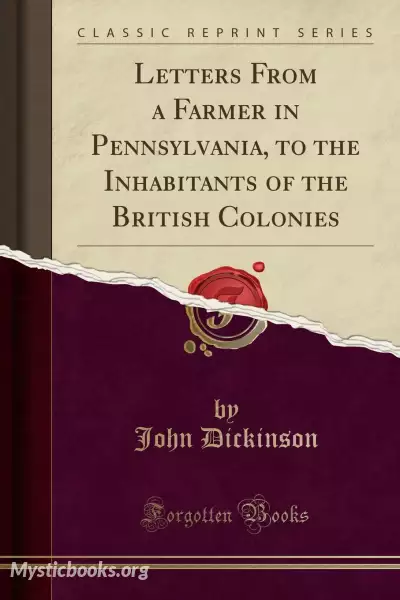
Letters from a Farmer in Pennsylvania
'Letters from a Farmer in Pennsylvania ' Summary
In the 1760s, the constitutional framework binding Britain and its colonies was poorly defined. Many in Britain believed that all sovereignty in the British Empire was concentrated in the British Parliament. This view was captured by Blackstone's Commentaries on the Laws of England, which stated that "there is and must be in all [forms of government] a supreme, irresistible, absolute, uncontrolled authority, in which the jura summi imperii, or the rights of sovereignty, reside".In practice, however, the colonies and their individual legislatures had historically enjoyed significant autonomy, particularly in taxation. In the aftermath of the British victory over France in the Seven Years' War, in 1763, Britain decided to permanently station troops in North America and the West Indies. Facing a large national debt and opposition to additional taxes in England, British officials looked to their North American colonies to help finance the upkeep of these troops.
The passage of the Stamp Act of 1765, a tax on various printed materials in the colonies, ignited a dispute over the authority of the British Parliament to levy internal taxes on its colonies. The Stamp Act faced opposition from American colonists, who initiated a movement to boycott British goods, from British merchants affected by the boycott, and from some Whig politicians in Parliament—notably William Pitt. In 1766, under the leadership of a new ministry, Parliament repealed the Stamp Act. However, Parliament at the same time passed the Declaratory Act, which affirmed its authority to tax the colonies. In 1767, Parliament imposed import duties—remembered as the Townshend Acts—on a range of goods imported by the colonies. These duties reignited the debate over parliamentary authority.
Book Details
Language
EnglishOriginal Language
EnglishPublished In
1767Genre/Category
Tags/Keywords
Authors
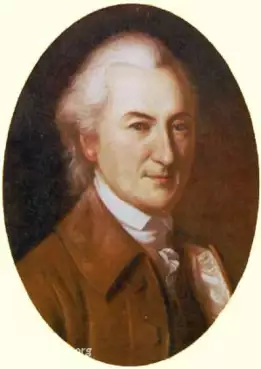
John Dickinson
United States
John Dickinson a Founding Father of the United States, was a solicitor and politician from Philadelphia, Pennsylvania, and Wilmington, Delaware, known as the "Penman of the Revolution" for his twelve...
Books by John DickinsonDownload eBooks
Listen/Download Audiobook
- Select Speed
Related books

Childhood - Детство by Leo Tolstoy
Childhood (Детство [Detstvo]; 1852) is the first novel in Leo Tolstoy’s autobiographical trilogy. They are the works that launched his writing career....
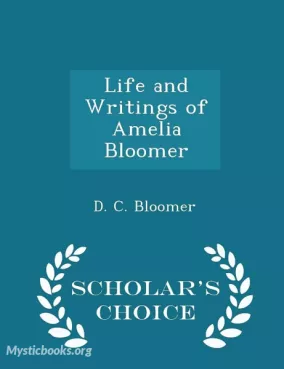
Life and Writings of Amelia Bloomer by Dexter C. Bloomer
Step into the remarkable life of a pioneering advocate with "Life and Writings of Amelia Bloomer" by Dexter C. Bloomer. Unveil the hidden chapters of...
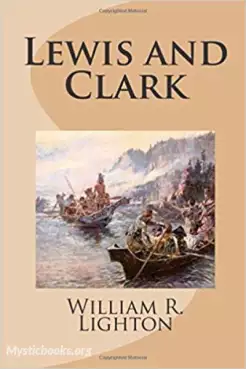
Lewis and Clark by William R. Lighton
In the years 1804, 1805, and 1806, two men commanded an expedition which explored the wilderness that stretched from the mouth of the Missouri River t...

Lay Down Your Arms: The Autobiography of Martha von Tilling by Bertha von Suttner
The book Die Waffen nieder! (Down with Weapons!) or Lay Down Your Arms! is the best-known novel by the author and peace activist Bertha von Suttner, w...

Dr. Benjamin Rush, A Memorial by Dr. Benjamin Rush
Dr. Benjamin Rush's autobiography, penned by himself, provides a unique and intimate glimpse into the life and times of a prominent figure in American...
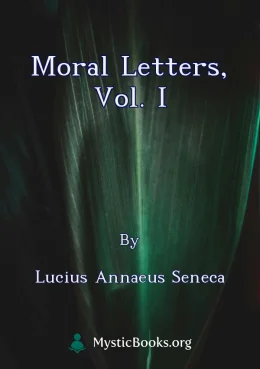
Moral Letters, Vol. I by Lucius Annaeus Seneca
Seneca's *Moral Letters* are a collection of personal letters addressed to Lucilius, a young Roman friend. In these letters, Seneca explores various a...

The Gamekeeper at Home by Richard Jefferies
Richard Jefferies (1848 – 1887) was born and spent his childhood on a farm at Coate,Wiltshire. He joined the ‘Wiltshire and Gloucestershire Standard’...
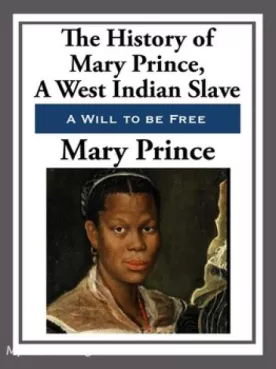
The History of Mary Prince by Mary Prince
The History of Mary Prince, a West Indian Slave is a harrowing account of one woman's experiences as a slave. It is a powerful indictment of slavery a...
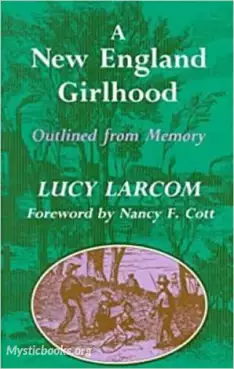
A New England Girlhood: Outlined From Memory by Lucy Larcom
"Larcom served as a model for the change in women's roles in society." This is her colorful autobiography. Here, she tells about her happy childhood,...
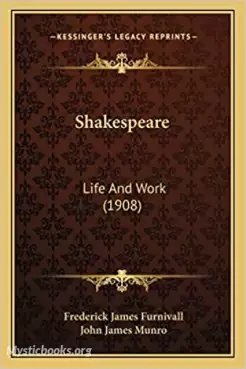
Shakespeare: Life and Work by John Munro
William Shakespeare: actor, poet, playwright. He is often called England's greatest writer, the Bard of Avon, a national treasure. But who was he? An...
Reviews for Letters from a Farmer in Pennsylvania
No reviews posted or approved, yet...